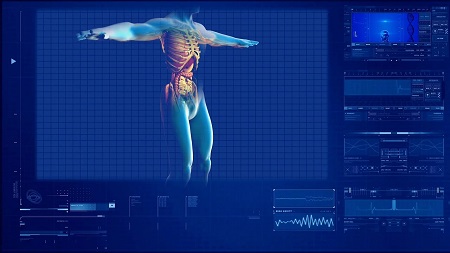 What is metabolism? Many people think it is a system or even an organ in the body that has something to do with the food you eat. Is it a part of the digestive system? Is it found in your stomach? You may be surprised to find out that it is absolutely none of those things. This is one of the most widely misunderstood processes, despite the fact that it helps to determine how successful we are at weight control. It’s time to leave the misunderstandings behind and get to know the facts.
What is metabolism? Many people think it is a system or even an organ in the body that has something to do with the food you eat. Is it a part of the digestive system? Is it found in your stomach? You may be surprised to find out that it is absolutely none of those things. This is one of the most widely misunderstood processes, despite the fact that it helps to determine how successful we are at weight control. It’s time to leave the misunderstandings behind and get to know the facts.
What is Metabolism?
To answer the question “what is metabolism?” it’s important to notice the way that question is worded. See anything interesting? Here’s a hint, there’s a word missing that you were likely expecting to be there. It’s “the”.
In everyday discussions, we tend to talk about the metabolism. While there’s really nothing wrong with that – most of us do it – it’s unfortunately a reflection of a misunderstanding of what it actually is. Because it’s not a thing. It’s a process. It’s not an organ or system of organs and other body parts. It’s something that happens within your body.
Taking a new look at what metabolism is can help you to better comprehend just what is going on and why it matters to the lifestyle decisions you make. Knowing about your metabolic rate can be helpful in ensuring you’re making informed nutrition and exercise choices.
Understanding Your Body’s Energy
At its most basic level, what metabolism is has to do with a conversion process through which your body turns your food calories into energy. That’s certainly an oversimplified definition, but it’s a great jumping off point.
Converting calories into energy that your body can use to function involves a highly complex process that has to do with far more than just digestion. So, it’s not just a part of your digestive system after all. The National Health Service in the United Kingdom helps to expand on the definition a bit to take in more of what it encompasses. They state that metabolism refers to all the chemical processes occurring within the human body. This includes everything that uses energy from food – that is, absolutely everything the cells do – from what is involved in your digestion to your respiration, and from your thinking and sleeping to your running or reproductive processes. Absolutely everything happening in your body from your cells, outward, is included.
Your Metabolic Rate and Your Weight
Since your metabolism is every chemical process that happens in your body, this does include your weight control. Your metabolic rate – that is, the rate at which your body uses energy in order to accomplish all the chemical processes it needs to function – determines how much energy you use and how much energy you store as body fat.
The faster your metabolism process, the more you use energy within a certain length of time, whether you’re active or at rest. This explains why many people focus on metabolic rate when their goal is to lose weight or to prevent weight gain.
Leave A Comment
You must be logged in to post a comment.